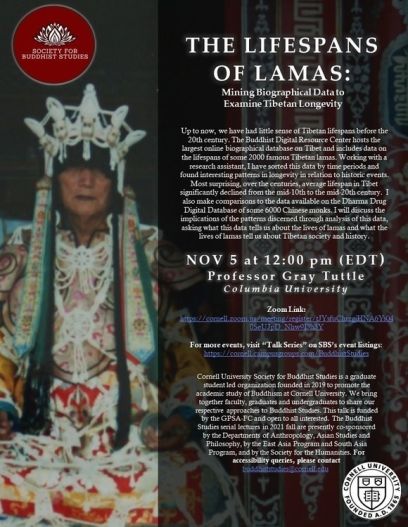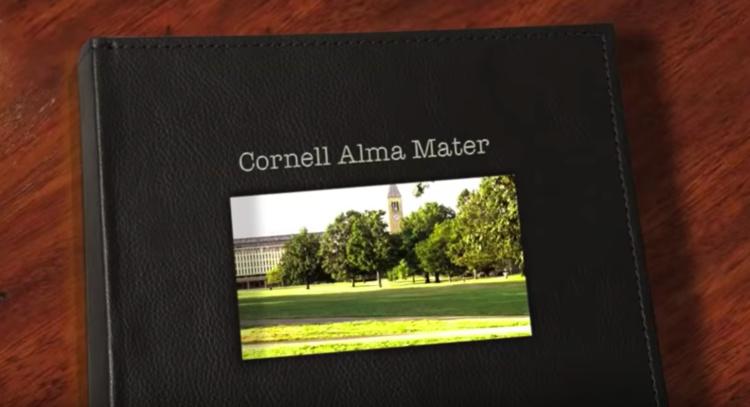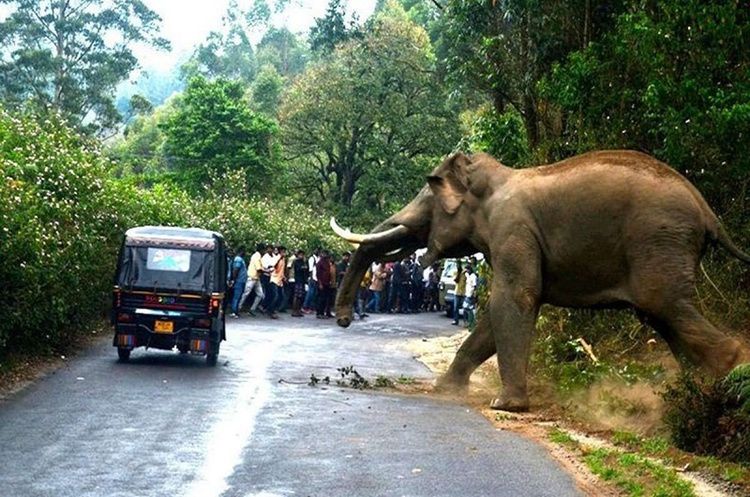South Asia Program
A Tale of an Afghan Interpreter: A Conversation with Farid Ferdows

November 18, 2021
7:00 pm
Long Island, NY
The Biden Administration’s withdrawal from Afghanistan on August 31st focused attention on the plight of Afghans who supported U.S. and allied forces. In December 2001, shortly after the 9/11 attacks, Farid Ferdows '21 was hired by the U.S. Army to work as an interpreter/translator. He received a special immigration visa in 2007 and enlisted in the U.S. Army. He was awarded the bronze star and became a student at Cornell University in 2017. Mr. Ferdows' family, however, remained in Afghanistan at the time of the withdrawal.
This special event offers unique insight and perspective on how the withdrawal impacted men and women who supported the global war on terror in Afghanistan. Co-sponsored by Congregation L’dor V’dor in Long Island, NY.
This is an in-person event in the NYC Metro Area. Alumni most welcome! Location: Congregation L'Dor V'Dor, 11 Temple Ln, Oyster Bay, NY 11771.
A video recording will be made available 24 hours after the event to those who register to participate virtually.
Registration required for both in-person and virtual option. This event is organized by the Institute of Politics and Global Affairs, part of the Cornell Jeb E. Brooks School of Public Policy.
POSTPONED
Due to unforeseen circumstances, we will have to postpone our event with Farid Ferdows that was set for Wednesday, November 17, 2021 at 7 p.m., ET at Congregation L’dor V’dor. We have rescheduled for Wednesday, March 9, 2022 at 7 p.m., ET at the same location. We apologize for any inconvenience this may have caused.
Additional Information
Program
Reppy Institute for Peace and Conflict Studies
South Asia Program
Forgotten War: The US in Afghanistan before 2001

November 15, 2021
4:45 pm
lecture with Seema Golestaneh. Rescheduled for November 15.
sponsored by Department of Near Eastern Studies, Iranian Student Association, and NES undergrad lunch series
Additional Information
Program
Einaudi Center for International Studies
South Asia Program
Aditya Vashistha

Assistant Professor, Information Science
Additional Information
Program
Role
- Faculty
- SAP Core Faculty
- SAP Steering Committee
- Global Public Voices Fellow 2021-22
Contact
Email: adityav@cornell.edu
The Lifespans of Lamas: Mining Biographical Data to Examine Tibetan Longevity

November 5, 2021
12:00 pm
Up to now, we have had little sense of Tibetan lifespans before the 20th century. The Buddhist Digital Resource Center hosts the largest online biographical database on Tibet and includes data on the lifespans of some 2000 famous Tibetan lamas. Working with a research assistant, I have sorted this data by time periods and found interesting patterns in longevity in relation to historic events. Most surprising, over the centuries, average lifespan in Tibet significantly declined from the mid-10th to the mid-20th century. I also make comparisons to the data available on the Dharma Drug Digital Database of some 6000 Chinese monks. I will discuss the implications of the patterns discerned through analysis of this data, asking what this data tells us about the lives of lamas and what the lives of lamas tell us about Tibetan society and history.
Additional Information
Program
East Asia Program
South Asia Program
"Reconsidering Renunciation: Models of Practice and Devotion in the Biography of a Buddhist Woman."

November 12, 2021
12:00 pm
Asian Studies Faculty Lounge, Rockefeller level 3
Please join us for a talk by MK Long (PhD Candidate, Department of Asian Studies).
This paper opens the historical study of initiated female Buddhist devotees (thilashin) in Myanmar through analysis of the 1982 biography of Daw Medawadi (1862-1932), founder of a Buddhist nunnery (chaung) at the turn of the twentieth century. Attending to rhetorical models of practice that reveal the stakes of the historically specific and local social worlds in which thilashin have sought to establish and maintain institutional footholds, I reconsider the assumed predominance of tropes of renunciatory asceticism in the self-presentation of thilashin and propose a more closely calibrated understanding of thilashin as non-ordained but initiated women unevenly empowered by relationships and practices that enable their advancement on a Buddhist path to liberation. In particular, I focus on the biography’s emplacement of its subject, Daw Medawadi, within a family system and within a patronage network as evidence of the meaningful persistence of highly intimate and localized networks of belonging and affiliation amidst the state-driven reorganization of Myanmar Buddhist institutions of the 1980s. Read intertextually with other contemporary, vernacular Burmese literature written by and about thilashin, Medawadi’s life narrative and other thilashin biographies offer a vital and largely untapped source that can contribute to our understanding of the social and historical underpinnings of understudied institutional forms of female Buddhist devotion in Myanmar.
The Cornell Buddhist Studies Seminar Series is co-sponsored by the GPSA-FC, the Departments of Anthropology, Asian Studies and Philosophy, by the South Asia Program, and by the Society for the Humanities. The paper can be read in advance, by those with a Cornell NetID at this link; interested parties without a NetID may contact MK directly at ml2458@cornell.edu.
The talk is in-person and open to the graduate and professional student community; for accessibility queries please contact buddhiststudies@cornell.edu
Additional Information
Program
East Asia Program
Southeast Asia Program
South Asia Program
Praveen Tilakaratne

Graduate Student
Praveen is a PhD student at the Department of Comparative Literature. His work focuses on modern South Asian literary and intellectual history (with an emphasis on 20th century Sri Lanka), psychoanalytic theory, Buddhist modernist thought, and postcolonial studies.
Additional Information
Lingua Mater Alumni Competition Deadline

November 8, 2021
5:00 pm
The Lingua Mater competition invites alumni to translate Cornell's Alma Mater into a different language and submit a video of the performed translation. The inaugural Lingua Mater alumni competition took place in 2018 as part of Cornell's Global Grand Challenges Symposium. Winners included the Cornell Club of Thailand 2018 and the Cornell Club of Gaeta, Italy in 2019, and won financial support of a local alumni event.
2021 competition details
Can you translate Cornell’s Alma Mater into your mother tongue (or a language you learned at Cornell) and sing it? We invite you to translate “Far Above Cayuga’s Waters” and submit a video of you (and your friends!) performing it, wherever you may be!
Translations do not need to be exact or perfectly in meter but should capture the feel and tune of our university’s Alma Mater. As is customary, include the first verse, refrain, second verse, and refrain in your video submission (for guidance, listen to a performance and read the lyrics).
Video submissions need to be MP4 files at 1920 x 1080 (1080p), in landscape mode with an aspect ratio of 16:9. Please ensure that you have copyright permission for any images/videos you use.
Entries will be reviewed by a panel of judges. Submissions will be judged equally on the translation, the musical quality, and the creativity in visual presentation.
The top entry will receive financial support and Cornell swag for a local alumni event.
Winners will be announced during International Education Week (November 15-19, 2021) via Noteworthy, and the top video will be posted online that week. Be sure to subscribe to our weekly newsletter to stay in the know of this competition and international alumni activities.
Entries may be submitted by any Cornell alumni groups outside of the United States and Canada.
Submission deadline: Monday, November 8, 2021 at 5 pm ET
SUBMIT YOUR VIDEO AND LYRICS HERE
Please contact the International Alumni Relations team if you have any questions.
The Lingua Mater competition is co-sponsored by the Office of International Alumni Relations, the Language Resource Center, and the Office of the Vice Provost for International Affairs.
Additional Information
Program
Einaudi Center for International Studies
East Asia Program
Southeast Asia Program
Latin American and Caribbean Studies
South Asia Program
ICM Global South Translation Symposium: Theory and Practice

December 4, 2021
11:00 am
The Institute for Comparative Modernities' first Global South Translation Symposium, featuring presentations by our inaugural cohort of translators (see below), remarks by translation theorist Naoki Sakai and commentary by Brett DeBary and Jan Steyn. Registation is required for this online event. Registration link:
https://cornell.zoom.us/webinar/register/WN_YiMmRJfJQPOUmiR4hK561g
With presentations from the following ICM Global South Translation fellowship recipients:
Wendy Call, on the poetry collection Stolen Flower (Guie’ ni zinebe / La flor que se llevó), from the Isthmus Zapotec and Spanish, by Irma Pineda
Guie’ ni zinebe / La flor que se llevó (Stolen Flower) is a collection of 45 poems by Irma Pineda, originally published in 2013 in a bilingual Isthmus Zapote/Spanish edition. Selected poems have been published in three languages in The Chicago Review. The collection explores gender-based violence against Indigenous communities, through multiple poetic voices. The author, Irma Pineda, is a spokesperson for the rights and autonomy of Indigenous Peoples, as well as for the families of disappeared persons.
Chamini Kulathunga, on selected poetry from Next Sweet Wines (Mīḷaṅga Mīvita), from the Sinhala, by Ruwan Bandujeewa
The work of contemporary Sri Lankan poet Ruwan Bandujeewa is highly acclaimed, particularly as writing that addresses class inequity, and describes the harsh realities groups living on the economic margins of an exploitative capitalist system. His popularity in Sri Lanka uniquely cuts across class boundaries. The poems in this collection comprise a selection of his most celebrated writing, as well as unpublished work.
David McKay, on the text We Slaves of Suriname (Wij slaven van Suriname), from the Dutch, by Anton de Kom
Wij slaven van Suriname (We Slaves of Suriname), is a classic anti-colonial work first published in 1934, but never published in English until David McKay’s translation. The author, Anton de Kom, was an Afro-Surinamese writer and left-wing political organizer who later lost his life resisting the German occupation of the Netherlands in World War II. De Kom’s historiographical book has been compared to the work of American authors such as W.E.B. Du Bois and to the anti-colonial writings of Frantz Fanon. In the Caribbean context, historians have likened We Slaves of Suriname to groundbreaking studies such as Capitalism and Slavery by Eric Williams and The Black Jacobins by C.L.R. James.
Quyen Nguyen-Hoang, on the prose poem collection Midseason Moonplay (Chơi Giữa Mùa Trăng), from the Vietnamese, by Hàn Mặc Tử
Hàn Mặc Tử is a symbolist inspired major modern Vietnamese poet as yet untranslated into English. Midseason Moonplay, published posthumously in Vietnam in 1941 is a wildly experimental and virtuosic series of prose-poems that expands the canon of Vietnamese literature. Quyen Nguyen-Hoang writes that his work “stands apart from the stereotypical body of poetry that encloses Vietnam as a country attached to the US-Vietnam war legacies or a nation under the yoke of colonization and oppressive regimes.”
Jennifer Shyue, on the short novel The Illumination of Katzuo Nakamatsu (La iluminación de Katzuo Nakamatsu), from the Spanish, by Augusto Higa Oshiro
Augusto Hiro Oshiro is a contemporary Peruvian writer born to immigrants from Okinawa. His short novels are considered vital and mesmerizing, some of the best contemporary writing in Spanish. This 2008 short novel La iluminación de Katzuo Nakamatsu invokes the complexities of Japanese-Peruvian histories, and exemplifies the writer at the height of his powers.
Remarks by Naoki Sakai, Distinguished Professor of Asian Studies Emeritus, Cornell University and commentary by Brett de Bary, Professor Emeritus, Departments of Asian Studies and Comparative Literature; and Jan Steyn, Lecturer in Literary Translation at the University of Iowa. Moderated by Natalie Melas, ICM Resident Director and Associate Professor, Department of Comparative Literature, Cornell University.
Additional Information
Program
Latin American and Caribbean Studies
South Asia Program
Southeast Asia Program
In Search of an End to Human-Elephant Conflict, by Rohan Munasinghe

November 29, 2021
12:15 pm
Uris Hall, G08
Elephants roam in about 60% of the land area in Sri Lanka, and in about 70% of that, the rural communities also live and cultivate, creating the perfect grounds for a deadly conflict. A total of 407 elephants and 121 farmers died because of human-elephant conflict in Sri Lanka in 2019 recording the world’s highest death toll due to human-elephant conflict (HEC) in that year. Crop and property damage due to HEC is already overwhelming, and there is no remedy in sight. Electric fencing, elephant raids, and elephant tracking have been exercised for decades now with very limited success. Deforestation, ill-planned development projects, and human encroaching are often blamed as the causes of HEC, however, such causes are irreversible, therefore, it’s time to have a fresh look at the problem and device such solutions that are effective. The way the problem is twined indicates that the key to save elephants is to stop elephants from crop-raiding and killing people in the form of unexpected close encounters. This is only possible if people know at least few minutes in advance the whereabouts of approaching elephants, so that they could team up and deliver a safe response before it is too late. So, is it possible to localize elephants from a distance? Well, the rumbles- the low frequency (14-24Hz) elephant calls might help. Particularly the seismic component of rumbles that propagate long distances through soil could be detected by an array of geophones to triangulate and localize elephants.
Rohan Munasinghe is a Fulbright Scholar at the Department of Global Development, CALS. He is a Professor at the Department of Electronic and Telecommunication Engineering, Sri Lanka where he works on several areas including human-elephant conflict, precession agriculture, drone applications, and adaptive traffic control. At Cornell, he intends to collaborate with the faculty at the Department of Global Development, the Ornithology Lab, Cornell AgriTech, and the CTL. He has written a textbook on control systems for undergraduates and have published many research papers. Rohan also leads the Technology Transfer Office of the University of Moratuwa, Sri Lanka where he gives leadership to IP management, Technology commercialization, and startup acceleration. Prof. Munasinghe has undergone training on intellectual Property at the CLDP, USPTO, and the University of New Hampshire. He also has completed WIPO DL courses on intellectual property. He has eight patents, seven designs, and one PCT pending. He has incorporated two startups with his students. Prof. Munasinghe provides his service to several national entities such as the National Science and Technology Commission, Center for Research and Development, National Innovation Agency, and National Science Foundation. He is a Charted Engineer, Senior Member of IEEE, and a member of Robotics and Automation Society of IEEE.
Additional Information
Program
Einaudi Center for International Studies
South Asia Program
Humanitarian Parole for Afghans

